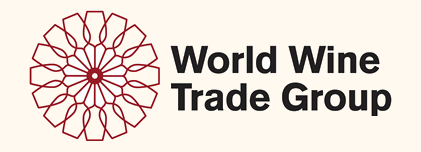Secretariat
The Group is an informal one with a rotating secretariat. The country due to hold the next meeting assumes the secretariat at the conclusion of the previous meeting. The secretariat operates as the distribution point for all information within the group, and organises the forthcoming meeting.
The Depositary
The Depositary is a role established in both the Mutual Acceptance Agreement on Oenological Practices and the Agreement on Requirements for Labeling. The Depositary is charged with receiving and maintaining signed copies of the agreements, as well as information regarding the laws, regulations and requirements and amendments relevant to the labeling of wine and to oenological practices and the lists of experts under Mutual Acceptance Agreement. The current Depository is the United States of America,
c/o: U.S. Treaty Office
Francis J Holleran,
Treaty Analyst/Depositary Officer
Office of Treaty Affairs (L/T)
Rm 5420, HST U.S. Department of State
2201 C Street,
N.W. Washington,
DC 20520-6419
202-647-3089 (tel)
202-647-9844
HolleranFJ@state.gov
The official WWTG government website is maintained by the United States of America,
c/o: WWTG Electronic Database Officer
Ms. Jamie Ferman,
Senior International Trade Specialist
U.S. Department of Commerce International Trade Administration
1400 Constitution Ave.,
NW Mailstop 4035
Washington, DC 20230
202-482-5783 (tel)
wwtg@trade.gov
Jamie.Ferman@trade.gov
Council of the Parties
A Council of the Parties is established in respect of both the Mutual Acceptance Agreement on Oenological Practices and the Agreement on Requirements for Labeling. Under the Mutual Acceptance Agreement, the Council’s functions are principally related to the accession of new parties and dispute resolutions. Under the Labeling Agreement these functions are included as part of a wider role that is designed to facilitate the proper functioning of the agreement generally.
Experts
Under the Mutual Acceptance Agreement, a Committee of Experts may be established for the purpose of a dispute settlement procedure. These experts are drawn from a list provided by the parties and maintained by the depository. Each party nominates four experts, who must be nationals of that party. Under the Labeling Agreement, the Council of Parties may also call on experts in a dispute resolution procedure on a discretionary basis.
PARTICIPATION
The WWTG has adopted the following guidelines for participation:1. The World Wine Trade Group
The World Wine Trade Group (WWTG, “the Group”) is an informal group of government representatives with a mutual interest in facilitating the international trade in wine and avoiding the application of obstacles to international trade in wine.
The WWTG welcomes and encourages participation in the Group of any national governments or members of the World Trade Organisation interested in furthering these goals.
Any potential participant wishing to take part in a WWTG meeting may express an interest to the host of the next meeting. The host will communicate this interest to the founding participants and other Parties to any Agreements adopted under the auspices of the WWTG who, through consensus, may take any appropriate decision about the nature and form of participation by the interested applicant in the WWTG.
ANNEX TO THE WWTG GUIDELINES ON PARTICIPATION: OUTLINING THE PROCESS FOR ACCESSION TO THE WWTG (Adopted April 11, 2014):
1. The candidate country firstly provides information to all WWTG participant countries** (Participants) on its policies, laws and regulations concerning oenological practices. This information is provided to the WWTG Chair and distributed to Participants via the electronic depositary. WWTG Participants have the opportunity to put questions to the candidate country relating to this information and to seek more detail as appropriate. This is a two- way process and the candidate can ask existing Participants how they have adjusted policies, laws and regulations in order to conform to the WWTG Agreements. This process concludes when all WWTG Participants have given their acceptance of the candidate country's laws, regulations, and requirements relating to oenological practices.
2. Thereafter, the candidate country confirms in writing to the WWTG Chair, its willingness to adhere formally to the 2001 WWTG Agreement on Mutual Acceptance of Oenological Practices (2001 Agreement). The Participants will encourage candidate countries to also adhere to the 2007 WWTG Agreement on Requirements for Wine Labelling, together with the 2013 Protocol to the 2007 Agreement, and any other WWTG agreements.
3. Unless otherwise agreed by the Participants, once these steps, 1 and 2, are completed, the Participants will invite the candidate country to become a Participant by adhering to the 2001 Agreement by the next annual meeting of the WWTG.
**Footnote: the term "participant country" is consistent with the original intention of WWTG countries to operate without a secretariat, employees, dues or formal membership and hence no members but only "participants". Participant status can only be achieved by adhering to the 2001 Agreement, unless otherwise agreed by the current Participants, as stated in paragraph 3 of this Annex.
2. Negotiations towards WWTG Agreements
When the WWTG decides to negotiate an Agreement on a particular subject matter it should do so initially on the basis of generally agreed principles and objectives for the proposed agreement. For example, the decision to negotiate towards a labeling agreement has been based on general acceptance by WWTG participants of the principles identified in the Sonoma industry statement.
Such principles will guide the Group in its negotiations and provide a reference point for considering progress towards attaining the goal(s) envisaged for the agreement.
Accordingly, negotiations toward an agreement on any particular subject matter should be open to those participants in the WWTG that believe they can proceed to conclude an agreement on the basis of the identified principles and objectives.
3. Parties to WWTG Agreements
The operation of agreements concluded under the auspices of the WWTG is independent of the workings of the WWTG. For example, the Council of the Parties established under the Agreement on Mutual Acceptance of Oenological Practices exists for the purposes of that Agreement. The Council operates in accordance with its own rules of procedure, independent of the workings of the WWTG.


